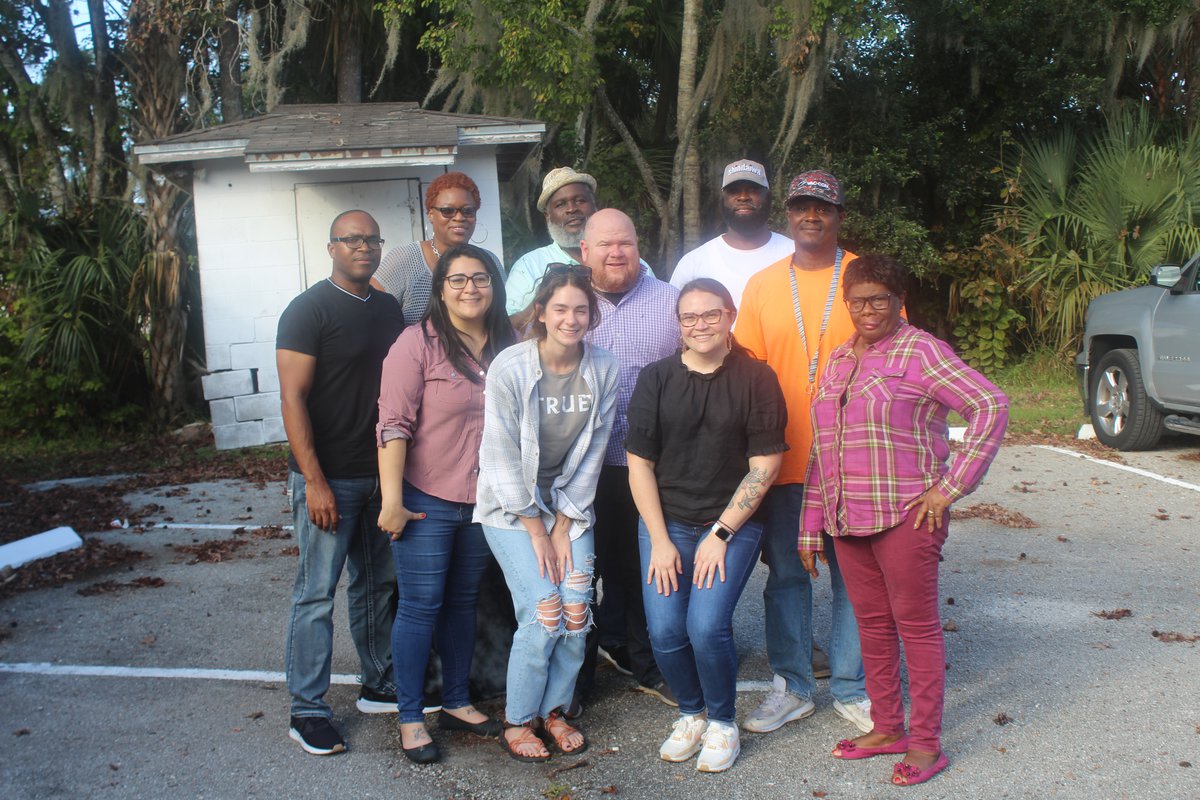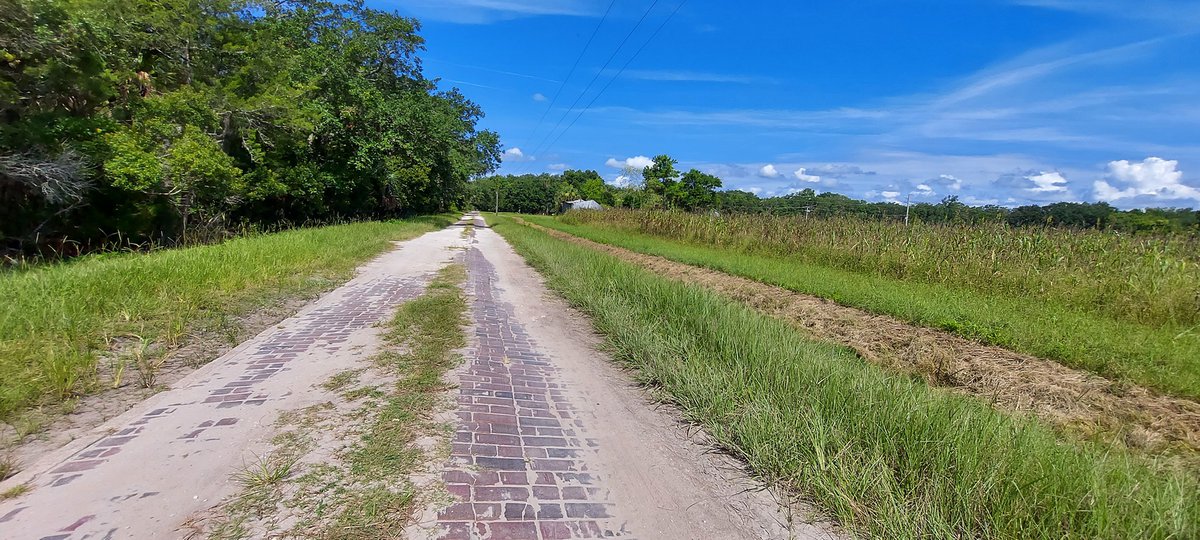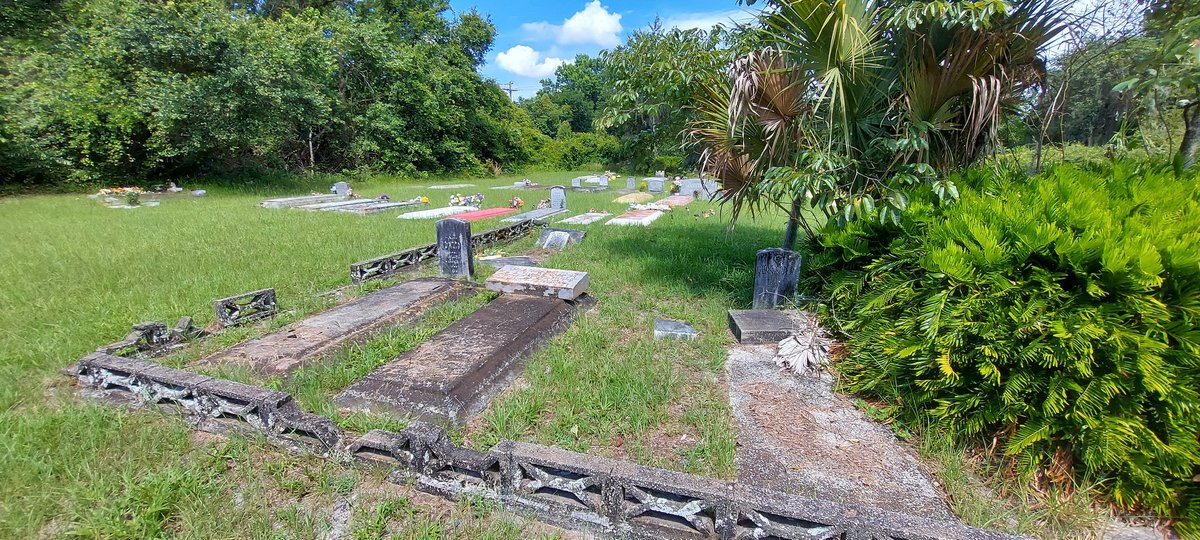Community Planning Assistance Team
FINAL REPORT

The Florida Chapter of the American Planning Association has established a Community Planning Assistance Team (CPAT) program dedicated to offering statewide assistance to communities in need of small and large scale projects through multidisciplinary teams of planning professionals. In July 2021, Sharon Austin of Hand-n-Hand Community Services Foundation, Inc., contacted APA Florida to ask for assistance in identifying revitalization strategies to spark economic development and small business opportunities for East Palatka residents while also preserving the community’s history, cultural heritage, and sense of place. In early 2022, APA Florida’s Community Planning Assistance Team (CPAT) committee selected the community of East Palatka to serve as the focus of the Chapter’s pilot CPAT project.
East Palatka is a historic agricultural community with Gullah Geechee heritage, located along the St. Johns River in eastern Putnam County between Palatka and Hastings. East Palatka was established during the 1880s as an important railroad junction along Henry Flagler’s Florida East Coast Railway. Following the railroad’s abandonment, construction of State Road 207, and Interstate 95, East Palatka declined economically. Now bisected by the St. Augustine-to-Palatka Trail (the former FEC railroad corridor), the community is characterized by brick streets, small-frame residential dwellings, historic churches, a mature natural landscape, and agricultural fields.
Members of the volunteer pilot CPAT began engaging with the community in 2022 with visits in July and November, and again in April 2023. Priorities as identified with the community include:
- Historic Preservation and Cultural Heritage
- Parks and Recreation
- Housing and Business
- Jobs, Training and Education
- Advocacy
This report summarizes the activities of the East Palatka CPAT along with recommendations related to community priorities. These recommendations are shared in terms of short-term (1-2 years), mid-term (3-5 years), and long-term (5+ years) goals. The recommendations are further grouped by what the community can do and what needs partnerships.
The East Palatka CPAT extends heartfelt thanks to Sharon Austin for her leadership, and the community for their hospitality and enthusiasm. It is the hope that the CPAT members can continue to serve as a resource for the East Palatka community.
Review and download the final report
--------------------------

Winter 2023 Update
By Ennis Davis, AICP
Last summer, APA Florida selected East Palatka as an initial Community Planning Assistance Team (CPAT) pilot project after their community leaders and residents reached out to ask for assistance in identifying revitalization and preservation strategies for the community.
Located on the east side of the St. Johns River in Putnam County, East Palatka is a rural farming community that has traditionally been home to potato and cabbage farm laborers. Bisected by the St. Augustine-to-Palatka Trail, the community originated in the 19th century and is characterized by brick streets, small-frame residential dwellings, historic churches, a mature natural landscape, and agricultural fields.

On Nov. 4 -5, CPAT pilot members Adrienne Burke, AICP, Esq.; Ennis Davis, AICP; Devan Leavins; Josephine Medina, AICP; Kylie Pope; and Ray Spofford, AICP, explored East Palatka to learn more about the community. Hosted by resident Sharon Austin of Hand-N-Hand Community Services, the CPAT team toured the community and met with several residents to understand more about East Palatka’s history, culture, challenges, desires, and potential revitalization opportunities.
In a community where food is an integral part of the local culture and economics, fish fry and barbeque were communal meals historically linked to East Palatka. So, it was a treat when longtime residents Terry Major and Sheila Crawford prepared these local dishes for the CPAT members.

On Saturday, residents gathered for a community meeting and CPAT working session at the Mount Olive African Methodist Episcopal Church Annex. APA Florida Immediate Past President Wiatt Bowers, AICP, attended for the day. Based on community feedback, major neighborhood priorities focused on the need for a community center, park amenities for local children, historic preservation, affordable and mixed-income housing, and educational training for residents.
Early lessons learned by the pilot team include the need for further capacity building and partner organization collaboration as opposed to the traditional APA National CPAT model of visiting once and producing a report as a final CPAT deliverable.

As a result, the CPAT team is currently working with affiliate organizations like the University of Florida Historic Preservation Program and the Florida Public Archaeology Network (FPAN) to document East Palatka’s historic African American cemeteries and to conduct a historic structures survey as a starting point for potential designation to the National Register of Historic Places, which in term opens the door for cultural preservation initiatives and additional equitable funding opportunities.
The team continues to coordinate and meet with local stakeholders and government agencies to understand better and open the door to additional economic and revitalization resources to address the community’s top priorities.
It is anticipated that the East Palatka CPAT Pilot project will be concluded in April. Stay tuned for additional details!
-------------------
Volunteers Set to Help Revitalize This Historic Community

Outline of the East Palatka community
By Patti Shea
The community of East Palatka is a historic truck farming neighborhood, with Gullah Geechee heritage, located along the St. Johns River in eastern Putnam County between Palatka and Hastings.
Community leaders and residents reached out to APA Florida asking for assistance in identifying revitalization strategies to spark economic development and small business opportunities for East Palatka residents while also preserving the community’s history, cultural heritage, and sense of place.

The Palatka to St. Augustine Trail runs through the East Palatka community center. All photos by Ennis Davis.
One idea is to embrace the concept of “Placekeeping” as opposed to “Placemaking”, to tell East Palatka’s story to users of the Palatka-to-St. Augustine Trail (East Coast Greenway), a former Florida East Coast Railroad line, which runs through the community’s center.
Enter APA Florida CPAT (Community Planning Assistance Team) volunteers.
In July, CPAT Leader Ennis Davis, AICP, visited East Palatka and met with community leaders to learn more about their short- and long-term goals.

Many of East Palatka's road are brick
East Palatka is a Gullah Geechee community that is rich in history, cultural heritage, and opportunity. APA Florida and the CPAT pilot team look forward to working with the community to leverage revitalization and economic prosperity opportunities for residents and small businesses, Davis said.
Ennis took the community’s CPAT application to the chapter executive committee, which approved moving forward as a pilot project since this will be the first CPAT the chapter has conducted. The chapter is reimbursing volunteers for their travel, food, and lodging expenses.
The group of volunteers – consisting of historic preservation, zoning, land use, parks, and transportation experts – will make a site visit Nov. 4 - 6 to collect data and information, as well as meet with residents. Volunteers include Ennis Davis, AICP, Adrienne Burke, AICP, Esq., Devan Leavins, Ray Spofford, AICP, CNU-A, Josephine Medina, AICP, and Kylie Pope.

Historic Pattersonville Cemetery is close to the the community's core public area.
East Palatka’s picturesque canopied and brick roads are ideal for agritourism and ecotourism. By helping the community “Placekeep” instead of “Placemake,” the CPAT aims to help preserve its rural character and hopefully give community leaders the tools to empower residents to begin sharing its long and intricate history with visitors. Key considerations are to preserve the historic buildings and sites while enhancing the small business offerings for residents.
The challenges facing East Palatka echo many historically excluded communities throughout Florida:
- Historic preservation
- Affordable housing
- Small business development
- Access to healthy and fresh foods
- Economic development
- Job creation in the community
- Heir property issues
We will post updates as the project progresses, as well as site visit images, and interviews with East Palatka Residents and CPAT volunteers.
Patti Shea is the communications manager for APA Florida. She can be reached at pshea@floridaplanning.org.

